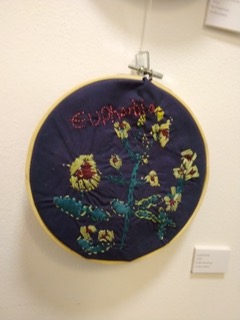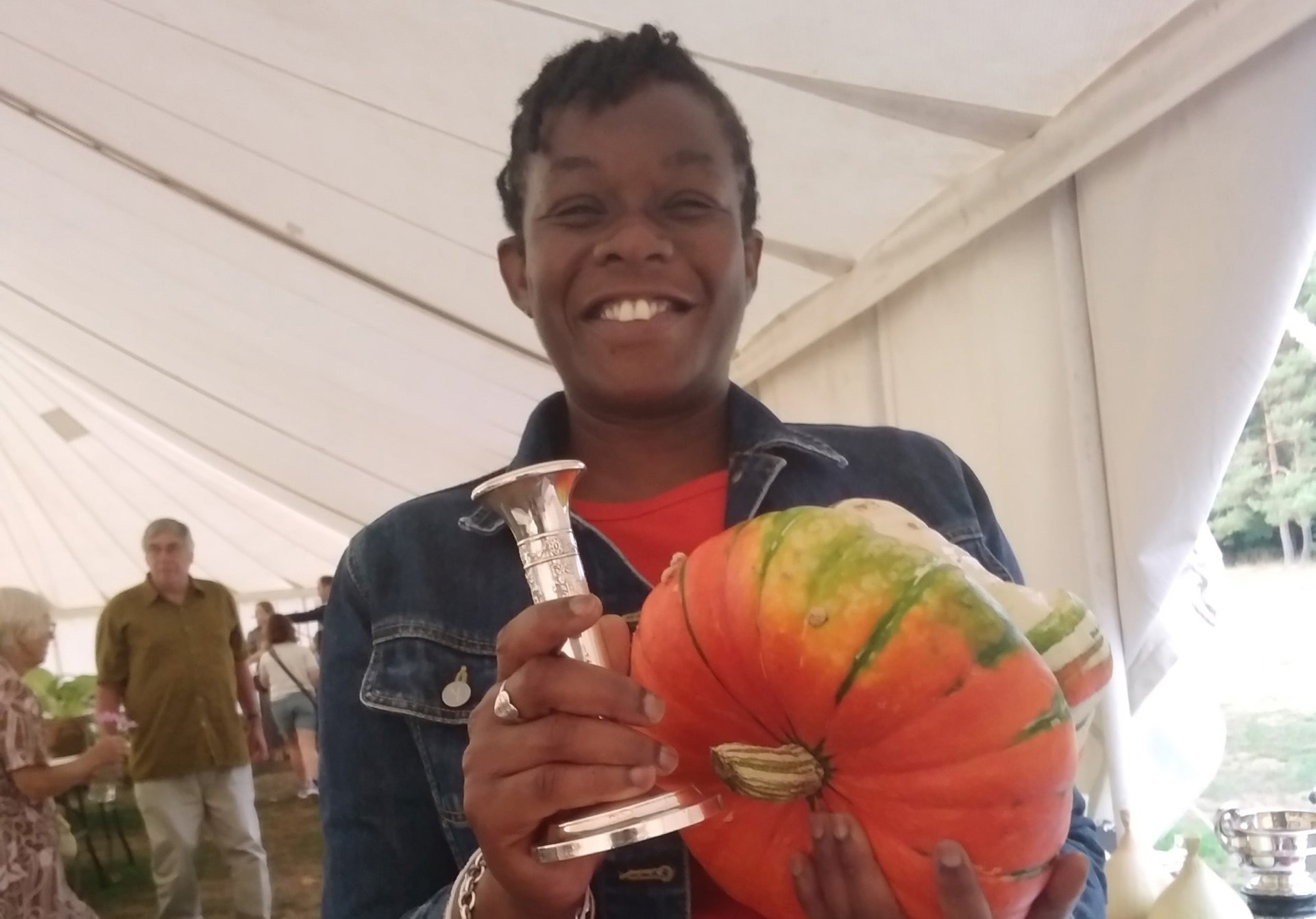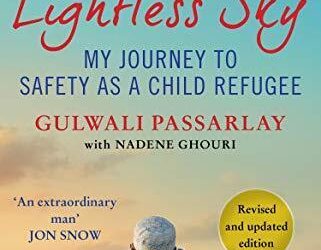Ruth celebrating her contribution when her community garden won first prize at the flower show
Discover how one woman, facing adversity, found solace and strength through creative outlets, fostering personal growth and embracing positivity.
Albert Einstein said that “in the midst of difficulty lies opportunity” and that philosophy is more than evident when speaking to Ruth, one of the 20,000+ people lost in the UK visa granting system. Ruth is not undocumented because she “over-stayed her welcome” but rather because of an administrative error in the Home Office which meant that over 20 years ago someone posted her passport and visa to the wrong address. While it appears to many, that a simple clerical error could, and should, be corrected easily at the source, for Ruth, the outcome was not so simple. Ruth came from Jamaica to study Computers, she settled into life in the UK, studying, living in an apartment and with a part time job, but suddenly, with no legal documents, Ruth’s life changed.
Unfortunately, Ruth started on a long and frustrating journey that so many other migrants have found themselves – moving from Home Office hostel to Home Office hostel, unable to work, dependent on government support and charities to barely survive, and battling against bureaucracy with no legal knowledge or support. Living in government assigned accommodation is not a luxurious life as some of the media and anti-migrant organisations suggest it might be – rather it is a life without privacy, without dignity, without any sense of security, without the ability to settle down and become part of a community. Ruth shared some insights into living in a home office hostel, and it makes for harsh reading.
However, Ruth’s life is not defined by the adversity she has faced, rather by the power of her resilience and how that adversity has shaped her generous, positive, and open-hearted personality. They say that there are only two certainties in life; death and taxes, but we can all agree that adversity is also a defining thread, and it typically strikes unexpectedly. While some people succumb to its weight, for others it fosters a sense of resilience and the ability to show empathy and compassion to others. For Ruth, having endured her own challenges and hardships, she has developed a deep understanding of suffering but more crucially, the importance of finding ways to alleviate the despair and to maintain a positive attitude.
Out of adversity, Ruth found some ways to maintain her spirit and find a community. When she moved out of London to live with a host family, she began volunteering with various organisations. Volunteering has long been linked to improving mental health and emotional well-being and Ruth’s volunteering not only enabled her to make friends in this new environment but through supporting a local community garden, she found not only a source of fresh food but a new hobby, a passion for gardening. She started to grow her own vegetable patch in her host’s garden and even donated excess vegetables to a charity organisation. Today, Ruth still enjoys gardening and has developed awarding-wining green fingers.
Ruth also found solace and a sense of calmness through a community embroidery group, with her very first piece displayed in an exhibition in a local library. And the group continue to maintain contact via WhatsApp, sending Ruth any sewing material she may need so even when she is not physically to attend the embroidery group, she can keep embroidering.

Ruth’s Embroidery
However, the main source of comfort for Ruth was discovering not only her love of writing but her ability to transcribe her emotions, her challenges, and her experiences into stories and poems. Ruth told us that she finds writing very therapeutic, it is not only an emotional outlet but also a way for Ruth to put her life into perspective and get clarity on her situation. And of equal importance for Ruth is that she finds writing provides her with the opportunity to document her experiences, affirming the validity of her struggles and significantly, help others who may find themselves in the same position. In her words, “writing healed me” and she knows that when she is writing she can express herself fully as “everything flows”.
Ruth used her writing prowess in her wining story, Invisible Heroes, for the TogetherintheUK Storytelling competition and for the anthology of migrant writing, Hear Our Stories, when she wrote about the challenges undocumented people faced during COVID, not only highlighting the exploitation of migrants but stressing how difficult it was for some people to access the necessary social welfare and health services that other people are granted. She writes that she wants everyone to be “visible” and to have access to equal rights and status. Ruth continues to write and to share the highs and lows of her life, exposing her readers to a different view on life in the UK and offering advice or a sense of hope to those in similar situations. In the TGIUK Hear Our Stories, we wrote that a good story does not tell us how to think but rather gives us questions to make us think and this is what Ruth achieves.
At the core of Ruth’s situation is the mix-up at the Home Office and now, working with a new solicitor, she is hopeful of a positive outcome, but she is still waiting. She hopes that if changes are to be made, that one would be a much shorter and more efficient waiting time for people, and for there to be more help and guidance on how to approach the application, understand the process, and most importantly, what to do when something goes wrong on either side. She would also like to see some type of temporary visa to allow people to work during this waiting period, as the financial support given by the government is minimum and she stresses the ability to work and to pay your own way is important for the dignity and pride of any person, aside from the absolute necessity to have more money to look after yourself and your family.
And her advice to those invisible people, “never give up” to look at every situation as an opportunity to develop as a person. She is glad in many ways that she did not return home immediately, as she feels that she might have missed the opportunity to become a writer, to develop a love for gardening, and to have met many generous and kind spirited people along the way. She does not forget the struggles but focuses on the positive and that is the heart and soul of Ruth.
To read more of Ruth’s life and her experience of living with a host family, go to TGIUK Stories.
For a deeper understanding of migrant lives and their stories in the UK, go to TogetherintheUK.
To immerse yourself in the rich anthology of migrant writing compiled by TogetherintheUK, purchase a copy of Hear Our Stories, from Support Us







